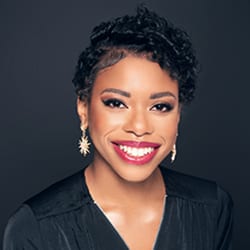The Challenges Younger Coaches Face
Becoming a coach, as with all rewarding decisions, can bring about significant challenges. The younger generation of coaches, roughly those between ages 18-35, are faced with unique obstacles. When I began professionally coaching at age 19, I encountered several of these obstacles. Early in my career, I recognized how many other young coaches encountered similar challenges. After surveying responses from other young coaches, the most significant challenges can be sorted in the following two categories.
1) Being Told You Don’t Have Enough Experience or Expertise
Commonly, young coaches can receive this response from others before these individuals even have the opportunity to receive information regarding the coach’s level of competency. Many young professionals indicate that they didn’t receive certain job opportunities because they were told they were much “too young” based on an assumption that they couldn’t have enough knowledge to offer support. These responses can come from family, friends, potential clients and even other coaches in the industry.
Recognize it is not uncommon to encounter ageism. Although it is possible you can encounter people who intentionally try to send negativity towards you (as anyone from any age group can encounter), many people are unaware of the unconscious biases they may have.
If you encounter this challenge, know that you can use this experience as a way to bring awareness to this individual’s perceptions. Engaging in a supportive and inclusive dialogue in which you bring direct attention to their viewpoints, while offering a space in which you demonstrate how much you value the other individual’s learning and current knowledge, can quickly change the dynamic of the conversation. You could even use the conversation as an opportunity to demonstrate active coaching geared towards genuine concern for the individual’s perceptions. Part of your role as a coach is to shift perspectives, offer insight into beliefs, and help others figure out new ways that can better support their way of being in the world.
Self-check how you feel. Don’t show up with anger and strong emotions. Only use words that you genuinely believe can create a positive effect and always be respectful.
Most importantly, understand the other’s perspectives and the context in which they are expressed. Don’t tell people what to do or think. Actively coaching them can help them discover how they want to think.
All of the following practices are helpful in exploring coaching skills because they require you to stay present in the moment, use active listening and expand your willingness to try new methods. Part of effectively communicating could include you modeling honesty by telling the individual how much you are committed to their self-awareness, learning and growth.
It is possible this exchange could inspire positive action that is designed by the individual you are engaging with, regardless of when these actions are made. As a coach you are a catalyst for the continued growth and change among those you encounter, including those who share opinions different from your own.
2) Doubting Your Competency
A secondary challenge that arises among many coaches is starting to question if you are truly able to guide your client. Surely if someone questions your level of skill that “must mean you truly aren’t able to help them.” Not true. Moments like this can diminish a coach’s confidence in providing service. This can lead to a mental spiral and perhaps make you feel you should switch your profession entirely, especially if everyone around you seems to believe you are incapable.
If this occurs, trust your intuition. Address the exact needs of who you are speaking to and discuss ways in which you can aid them in reaching their goals.
Clearly communicate your experience, certifications, credentials, knowledge and any significant experiences which have got you to where you are—in the exact position to help them. It may help to write down a professional pitch regarding your services. Don’t limit your experience to your age. Your experience also includes personal learnings, professional growth, whom you have helped, the measurable number of your impact, and outcomes of your coaching, both personal and professional. Practice your pitch and receive feedback from other professionals, coaches, communicators and anyone who will give you honest feedback.
Remember, you are not responsible for “proving” your self-worth to your clients, but you are responsible for recognizing your own.
Regardless of age, every person has the ability to learn something from everyone they meet. Imagine if the world’s greatest thinkers had the mentality that they could only learn from people who were older than them. Believing the contrary could invalidate the life lessons gathered by people in other professions, such as childhood development and education. The roadblocks you face aren’t meant to discourage you; they are meant to help you grow.



Muchas gracias por el articulo, tengo 32 años y me certifique con 22 años y me vi muy identificado en mis primeros años con lo que compartis en este hermoso articulo, saludos des de Argentina